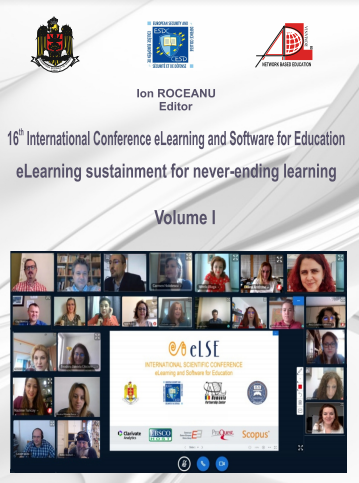ASSESSING THE IMPACT OF THE BASIC PSYCHOLOGICAL NEEDS ON THE EDUCATIONAL RESULTS: A CASE STUDY OF STUDENTS
ASSESSING THE IMPACT OF THE BASIC PSYCHOLOGICAL NEEDS ON THE EDUCATIONAL RESULTS: A CASE STUDY OF STUDENTS
Author(s): Alina-Elena Luchian, Costin-Anton BoiangiuSubject(s): Higher Education , Educational Psychology, Developmental Psychology, Psychology of Self
Published by: Carol I National Defence University Publishing House
Keywords: Self-Determination Theory; Basic Psychological Needs; Intrinsic Motivation; Academic outcomes;
Summary/Abstract: The strongest type of motivation that leads a human being, when it comes to solving our daily tasks, is the intrinsic motivation. Contrary to extrinsic motivation which, in general terms, is guided by rewards or by the value and the importance we give to the things we have to do, the intrinsic motivation is much more powerful. This kind of motivation appears out of the significance of the work we do daily, without seeking a final reward. Over the years, the researchers have studied The Self-Determination Theory (STD) and tried to determine the conditions and the contexts that support, or on the contrary, repress this self-motivation process. They have reached the conclusion that there are three psychological needs that have a direct impact on the internal motivation, common to the human nature: autonomy, competence and relatedness. The purpose of this study is to investigate the connection between the fulfilment or the suppression of these three basic needs and the educational results. To prove this connection, a group of students was asked to fill in a questionnaire consisting of two parts. The first part contains a set of 5 questions regarding their academic achievements and performances during their student years. The second part includes a set of 21 questions: 7 questions assessing their autonomy, 6 questions regarding their competence and 8 questions concerning their relatedness, all of three needs in the context of the educational environment. The dataset consists of students enrolled in a bachelor's or master's degree program. In the first part of the questionnaire, they have graded the percentages of their academic success and failure. In the second part of the questionnaire, they graded the 21 questions on a scale from 1 to 7.
Journal: Conference proceedings of »eLearning and Software for Education« (eLSE)
- Issue Year: 16/2020
- Issue No: 01
- Page Range: 135-143
- Page Count: 9
- Language: English

